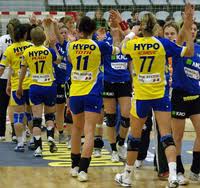
The IHF recently posted an article highlighting the status of Olympic Qualification and specifically, the Olympic Qualification Tournaments that will take place 17-19 April.
It’s kind of complicated as to how the dominoes fall, so I’ve created a chart (above) that shows which nations could be placed in each tournament based on how high each nation will place at either the European or African Championships which are both ongoing.
A few notes of explanation.
Hierarchy of Qualification
There are several ways to qualify for the Olympics, but a nation can only qualify once and there is a hierarchy to that qualification.
- Host Nation (Japan)
- World Champion (Denmark)
- Continental Champion
- Asia (Bahrain)
- Pan America (Argentina)
- Africa (Egypt or Tunisia)
- Europe (Spain or Croatia)
- Olympic Qualification Tourney (6 nations from 3 Tourneys)
- Seeded based on WC places 2-7
- 2nd (Norway)
- 3rd (France)
- 4th (Germany)
- 5th (Sweden)
- 6th (Croatia)
- 7th (Spain)
- 8th – Egypt
- 9th – Brazil
- Seeded based on 2nd or 3rd at Continental Championship
- Seeded based on WC places 2-7
So with this hierarchy, there is a domino effect. As an example if Norway were to win the European Championship they will qualify as a continental champion and they will be removed from the Olympic Qualification Tourney seeding. And, then every nation on the list would move up one spot and slide over to another tournament based on the arrows indicated.
2020 African Championships
Egypt and Tunisia will play in the gold medal match and Angola and Algeria will play for Bronze on Sunday, 26 January.
Africa was the 2nd best continent at the 2019 World Championships so Africa has 2 slots in the Olympic Qualification Tournaments. Egypt was also the 8th place team at the World Championships, so if they lose to Tunisia on Sunday they will secure an OQT slot through that path. If that happens Africa will have 3 nations qualifying for an OQT. Tunisia, will automatically qualify, Egypt will be in Tourney #1 and then Angola and Algeria will have the Africa 2 and Africa 3 slots. However if Egypt wins Tunisia will be Africa 2 and the winner of the Angola-Algeria match will be Africa 3.
2020 European Championships
Thinks are a lot more clear now with the European Championships.
Only 1 Domino: With Croatia being the 6th place team at the last world championships and Spain being 7th there’s only 2 possible outcomes. Either Spain or Croatia will automatically qualify for the Olympics and the loser will be slotted into Tournament #2.
Europe 2 and Europe 3 slots are now set
- Slovenia will finish either 3rd or 4th and has secured the Europe 2 slot
- Portugal will finish either 5th or 6th and has secured the Europe 3 slot.
Brazil’s Situation
Brazil will qualify for Tournament #1 if Egypt wins the African Championship
Easy – Peasy Tournament #1
As usual, on paper, Tournament #1 is the place to be as it will only have 1 European nation fighting for 2 slots. France would surely have preferred for Norway to win the title. Now they will face their new nemesis, Portugal and the loser of Spain-Croatia. Nothing against Chile and S. Korea, but they just aren’t at the level of those sides.
I will update this article as more results become known.





